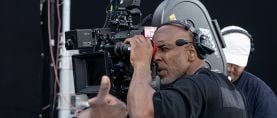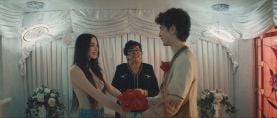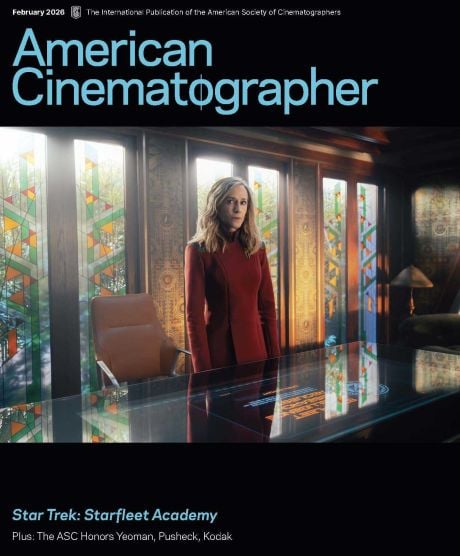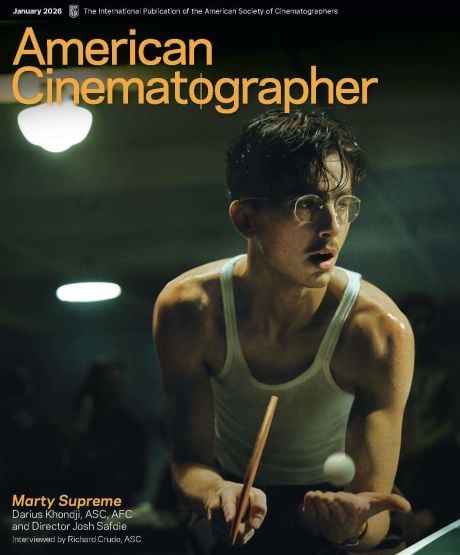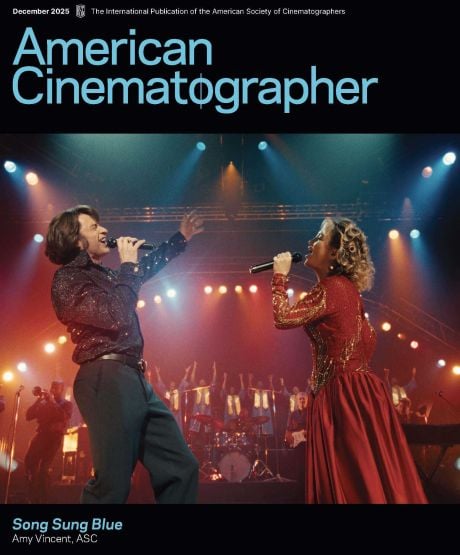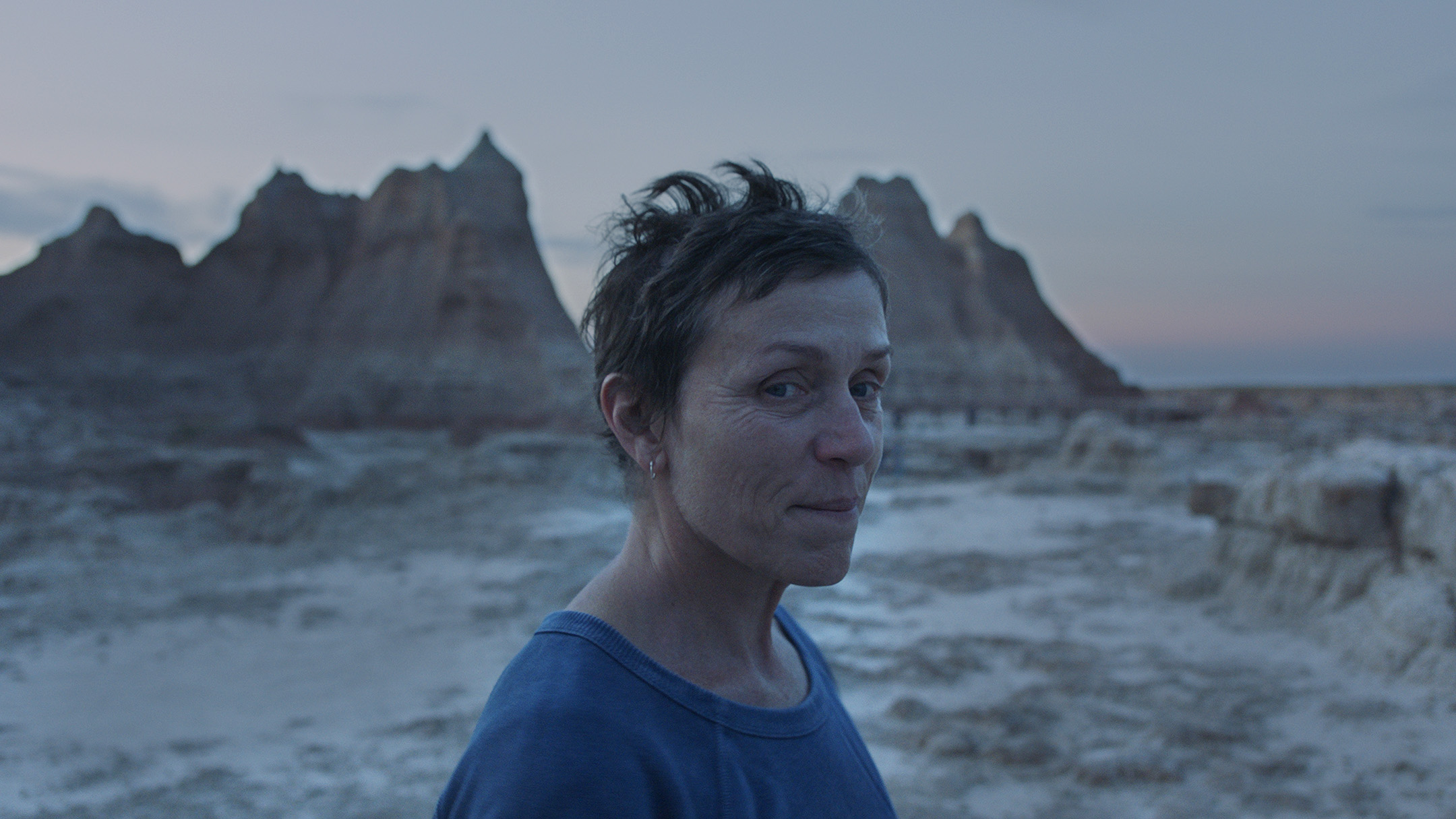
Nomadland: New Naturalism
Cinematographer Joshua James and director Chloé Zhao achieve a poetic tone in this story of restless lives.
Photos courtesy of Searchlight Pictures
Director Chloé Zhao has teamed up on three features with her partner, Joshua James Richards, who serves as cinematographer. The first two, Songs My Brother Taught Me and The Rider, star John Reddy and Brady Jandreau, respectively — people the director met on a Lakota Sioux Pine Ridge reservation — who play fictionalized versions of themselves. This mixture of real characters and scripted scenes gives her films a unique authenticity. Zhao used a similar approach on her latest production, Nomadland, which features struggling American senior citizens who live in vans on the road, but she added a fictional protagonist, Fern (Frances McDormand).
Nomadland follows Fern as she travels through the West after losing her husband and her home. She survives on odd jobs, meets a community of kindred nomads, and continues alone on her healing journey through powerful American landscapes. With its natural lighting and simply lit interiors, Richards’ cinematography renders the subtleties of sunlit Badlands, sunsets, and dusks, and reveals the dignity of humble faces. The picture earned Zhao the Venice Film Festival’s top honor, the Golden Lion, and Richards the Camerimage Golden Frog. Previously, Richards earned an ASC Spotlight Award nomination for his camerawork on The Rider.
Zhao and Richards’ collaboration could be viewed as an extension of a cinematic movement that might be dubbed “New Naturalism,” in the spirit of the approach director Terrence Malick and cinematographer Emmanuel “Chivo” Lubezki, ASC, AMC pioneered with The New World (AC Jan. ’06) — an informal “dogma” that they later refined on The Tree of Life (AC Aug. ’11) and subsequent collaborations. New Naturalism is all about authenticity, and the rhythmic, poetic editing of Malick’s films is designed to eliminate any hint of artifice. For his actors, this implies working without a script, encouraging improvisation, seeking happy accidents, and including non-professionals in the cast.
“I brought many aspects of Frances’ own life
into Nomadland.”
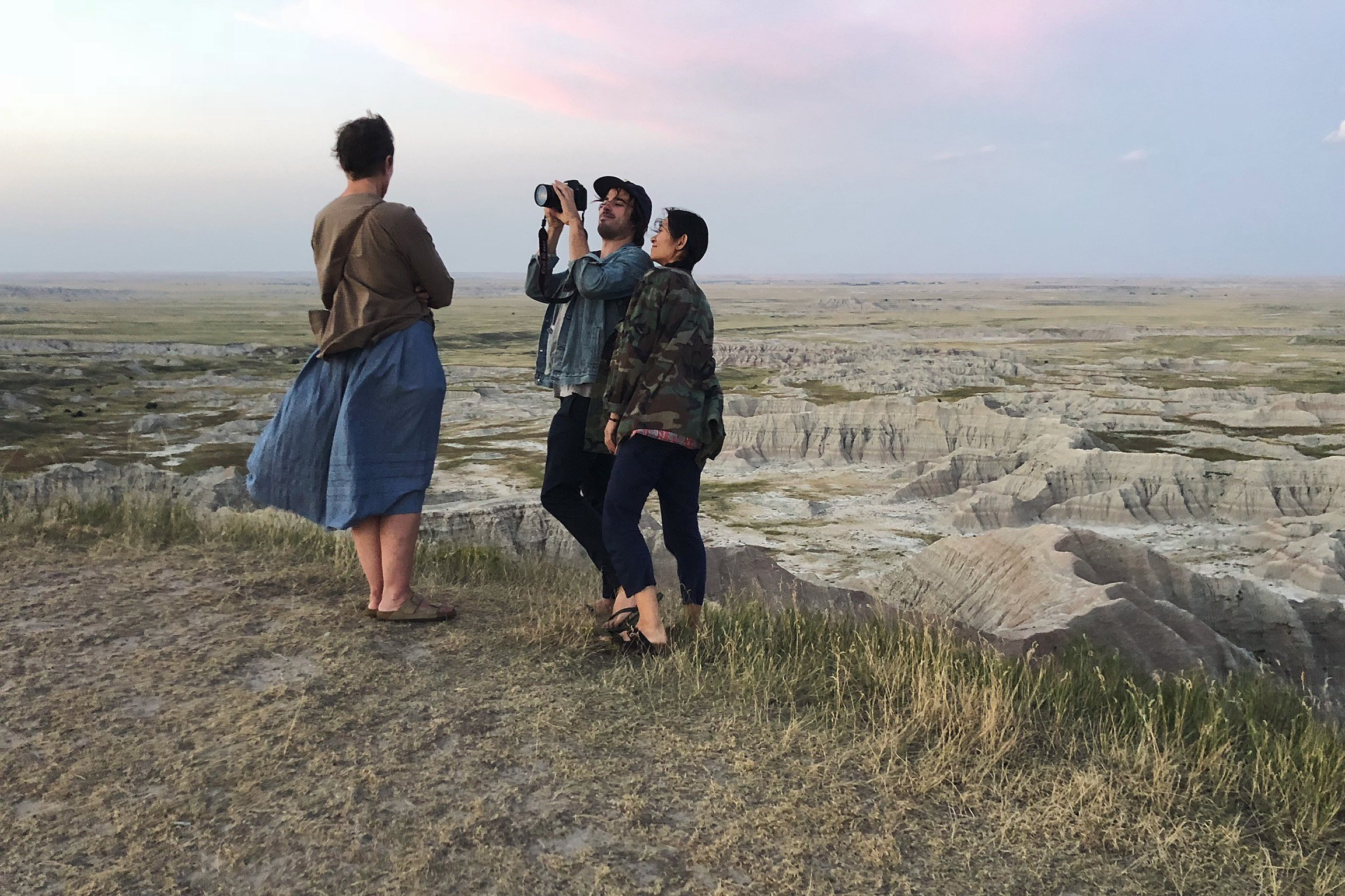
A recurring theme in Malick’s work is that human encounters with nature are transformational, transcendent events. Natural light is itself so important to these movies that it can be seen as a leading character, embodying the presence and diversity of nature. In an age of increasingly virtual, computer-generated images, New Naturalism offers an alternative cinema. Whereas many other filmmakers have adopted the visual language of New Naturalism, Zhao and Richards are evolving this movement with their inclusion of real people. With Nomadland, they invite viewers to experience the healing power of empathy in a scattered community of kindred souls and the mystery of a grieving woman’s epiphany in the desert.
American Cinematographer: You have a unique way of creating the screenplay. Instead of starting with a story, you meet real people, get to know them, write a screenplay based on them, and then ask them to play themselves.
Chloé Zhao: That’s the way I explore. I was lucky enough to meet these unique individuals who became guides for me, and it would have undermined that process if I’d favored story over a portrait of them. On the reservation, I met a kid named John Reddy [for Songs My Brother Taught Me], and that’s when the character was created. Being a Lakota living on the reservation is only part of John’s identity. The most important thing to me is who he is as a unique individual, a young man coming of age. And it’s the same for Brady in The Rider,and for [the characters in] Nomadland. These are individuals with universal human struggles.
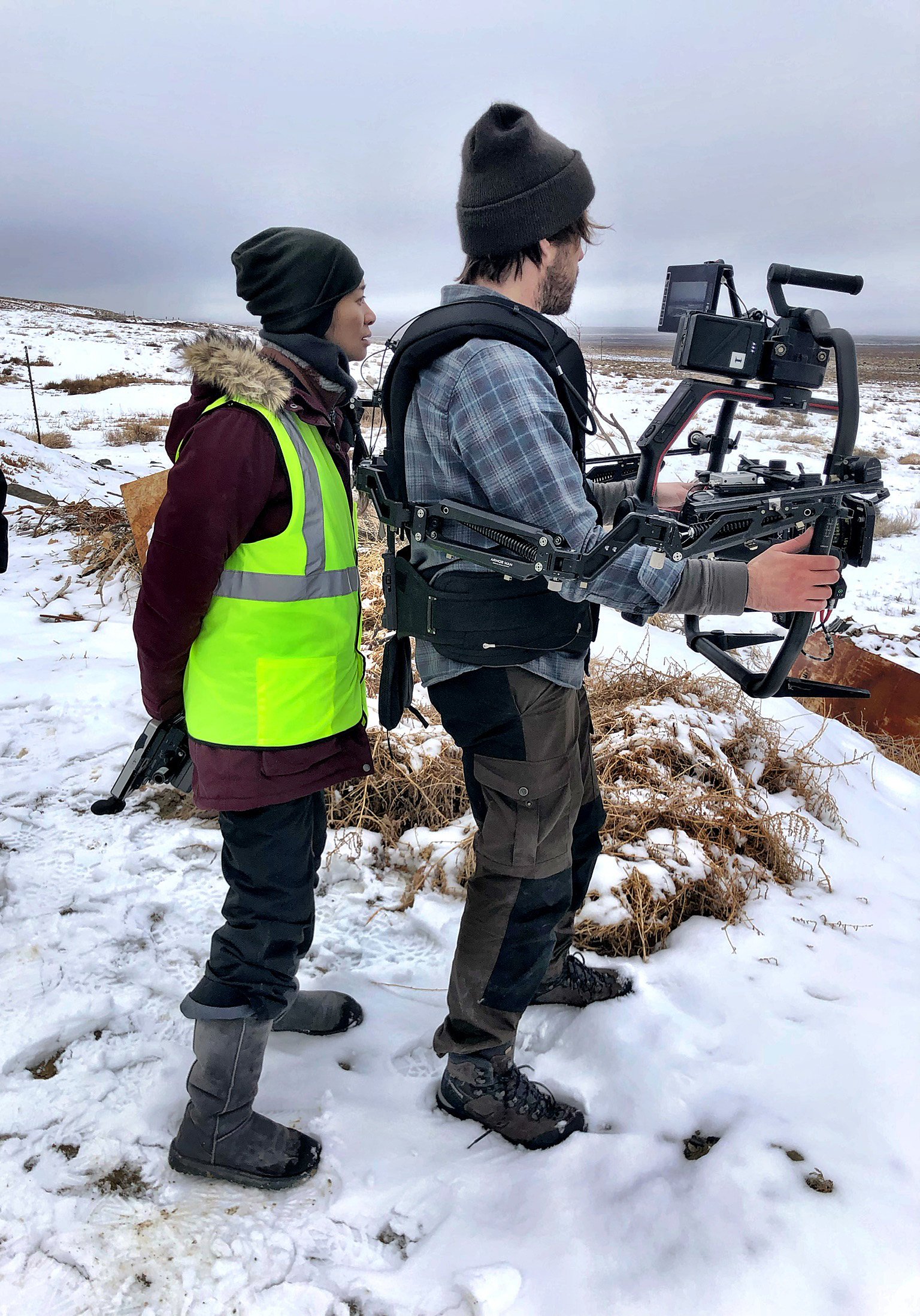
Joshua James Richards: On The Rider, Chloé started by wanting to [immerse] an audience in this young, gifted horse trainer’s experience. She wrote the script with that idea in mind by delving into Brady’s life, taking me with her, getting Brady used to the camera, to the filmmaking, to our collaboration. We’re not coming in as a film crew; we’re interested in having an experience with him. The psychologist Carl Rogers speaks of ‘unconditional positive regard’ — in other words, listening with love. To me, that’s filmmaking.
A key difference is that in Nomadland, you created a completely invented character played by an actor, Frances McDormand.
Zhao: Invented, but at the same time there was a very strong collaboration with Frances, similar to how I collaborated with John and Brady. I brought many aspects of Frances’ own life into Nomadland. She and I agreed that was the only way we could work: to get her character into a world where everyone is playing a version of themselves.
“The images need to give you a sense
of
Fern’s inner world.”
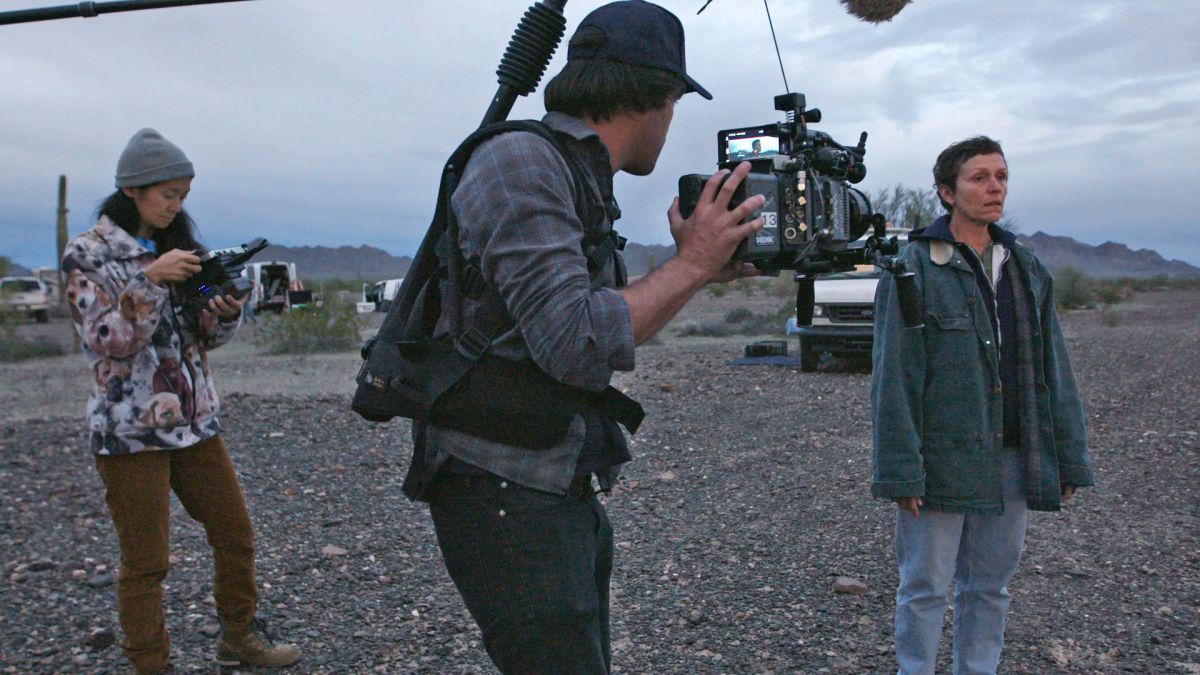
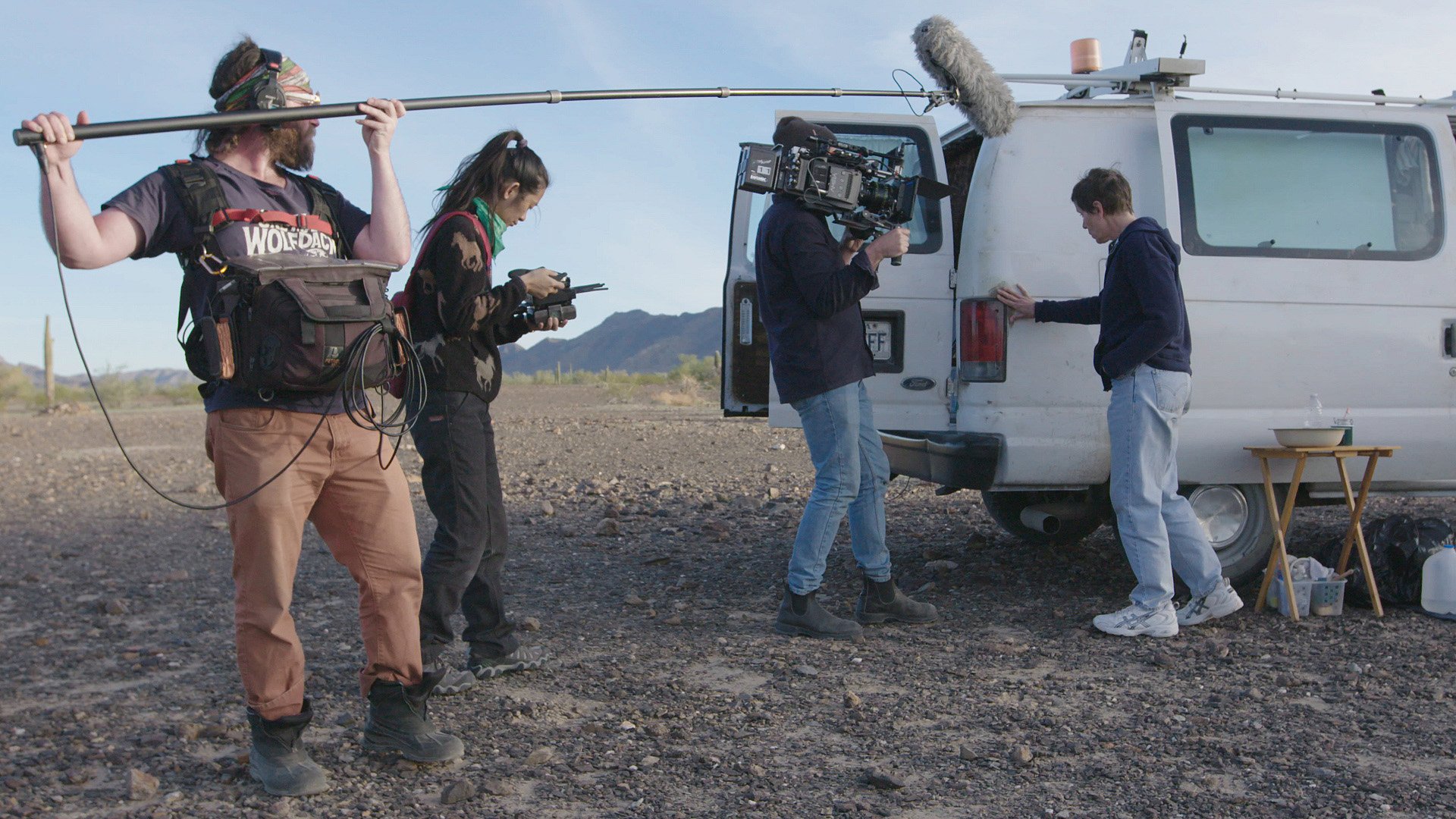
When you say that true filmmaking tries to get at the heart of a question, it’s not just about naturalist filmmaking, but also about the goal of your project.
Zhao: For me to make a film, I have to know it will mean something to me, help me grow as a person. So that becomes a very crucial thing when deciding to do a project. It doesn’t matter what genre, because filmmaking is really a way of living, and life is short. [Laughs.]
Can you discuss what these questions and themes are in Nomadland?
Zhao: On a personal level, not just as a filmmaker, but as a viewer myself, it would be the importance of solitude. Solitude in nature. And also that feeling of being part of something much bigger than ourselves. Looking at a rock, a desert, a landscape — things that have been here way before us and will be here long after we’re gone. It’s the dirt underneath our feet; that’s where we come from, and that’s where we’ll end up. Sometimes we forget that these days, [as we sit at] our computers. When you’re standing in that landscape, nothing else defines you except that you’re part of it. Nothing matters because you’re part of this cycle of life, it comes and goes, everything is decided. It’s a very humbling feeling, and I think that’s something we all need [to feel] as a species.
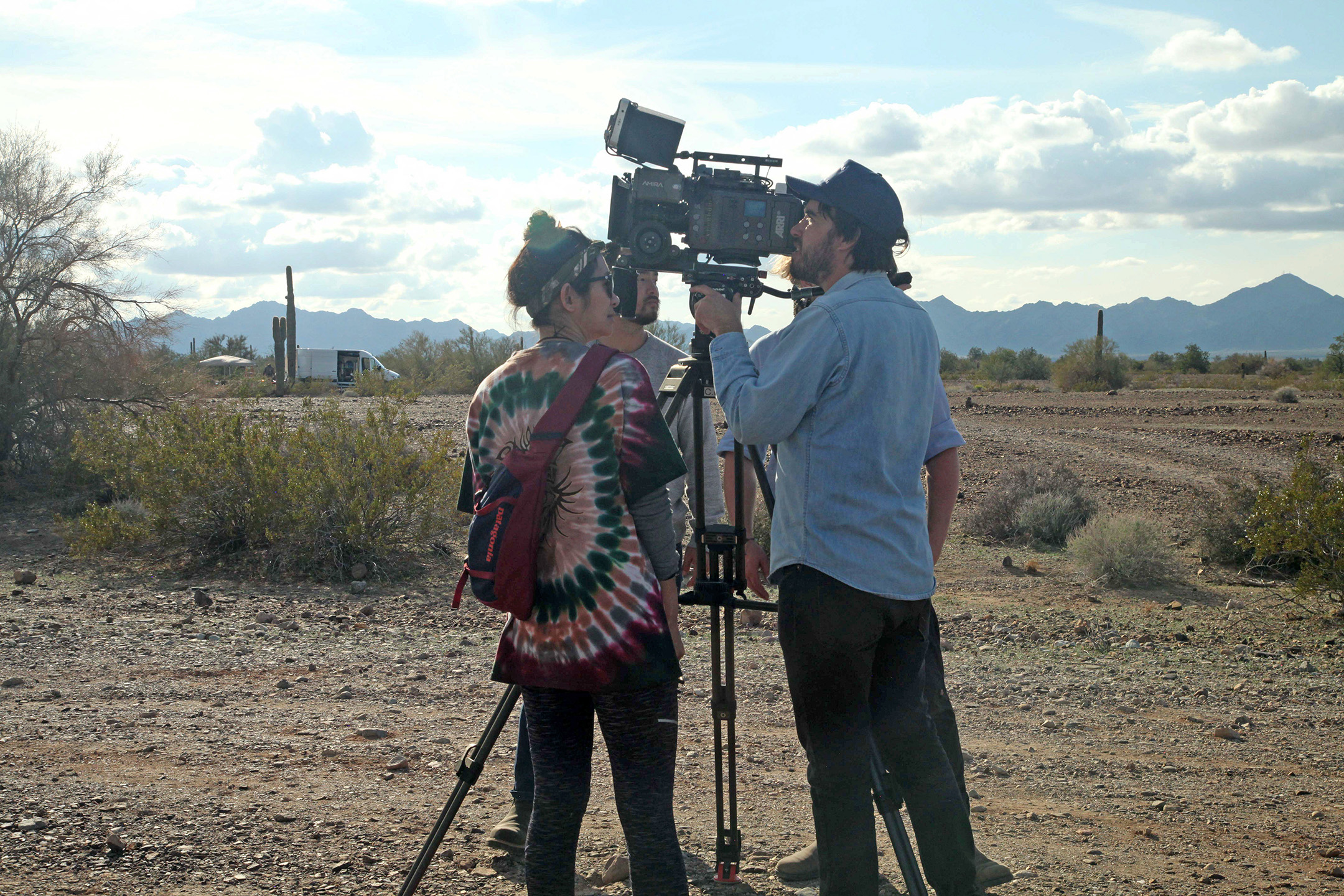
How is the experience working as partners and collaborators?
Zhao: To be honest, it’s not always a sunny sky. [Laughs.] I know that the stronger the collaboration is, the more friction there will be. When you get comfortable with someone, it gives you the space to push yourself. Josh and I really pushed each other on the three films we did together. The most important thing is: Do you agree on how you want to conduct yourself in the world as a human being? Josh and I have always been on the same page regarding how we present ourselves when we go into people’s lives, making films this way.
With respect for the dignity of the people you shoot?
Zhao: Yeah, because when you have that, it shines through in how you film them. I think an operator should have that kind of empathy for a person when their light shines. That’s how they can see this individual even in the darkest times. Josh has that empathy, and that’s what makes him a great cinematographer.
Richards: Chloé and I have formed a really close bond both personally and through the experience of making these films. We’re on an exploration together. I really trust Chloé. I’m not sure I trust myself, but I do trust her. [Laughs.] She is digging a little deeper than other directors. The images need to give you a sense of Fern’s inner world, but you also have to make the images sing. All of Chloé’s films are really about identity. Who are you when you lose your town and all these things that society says are ‘you’? When it’s just you and the four walls of a van, you really find out who you are.
What size crew did you have, and how do you approach the work on set?
Richards: On The Rider, we were six. With Nomadland, we had about 25 key people. Chloé is very careful; we cast the crew in the same way she casts the actors. I would like to mention my AC, Charles Bae; my gaffer, Matthew Attwood; and our art director, Elizabeth Godar.
Chloé does a broad shot-list, so there’s a pretty solid plan at the beginning of every scene. We both know what she needs in the edit. Sometimes I don’t even cut the camera, I just move quickly to get the moments Chloé wants. We’re constantly looking at each other. It’s unspoken — I kind of know [what she’ll want].
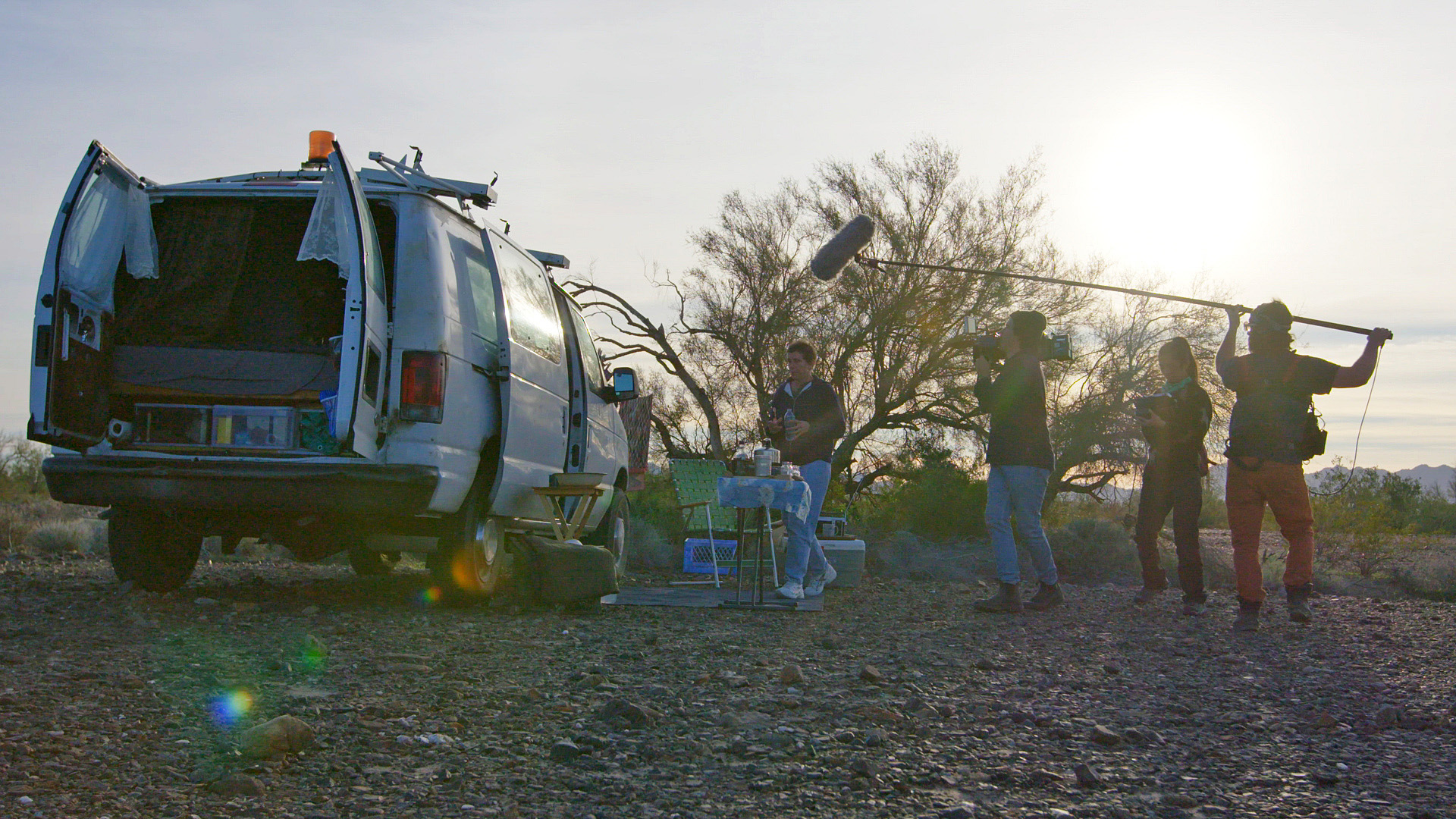
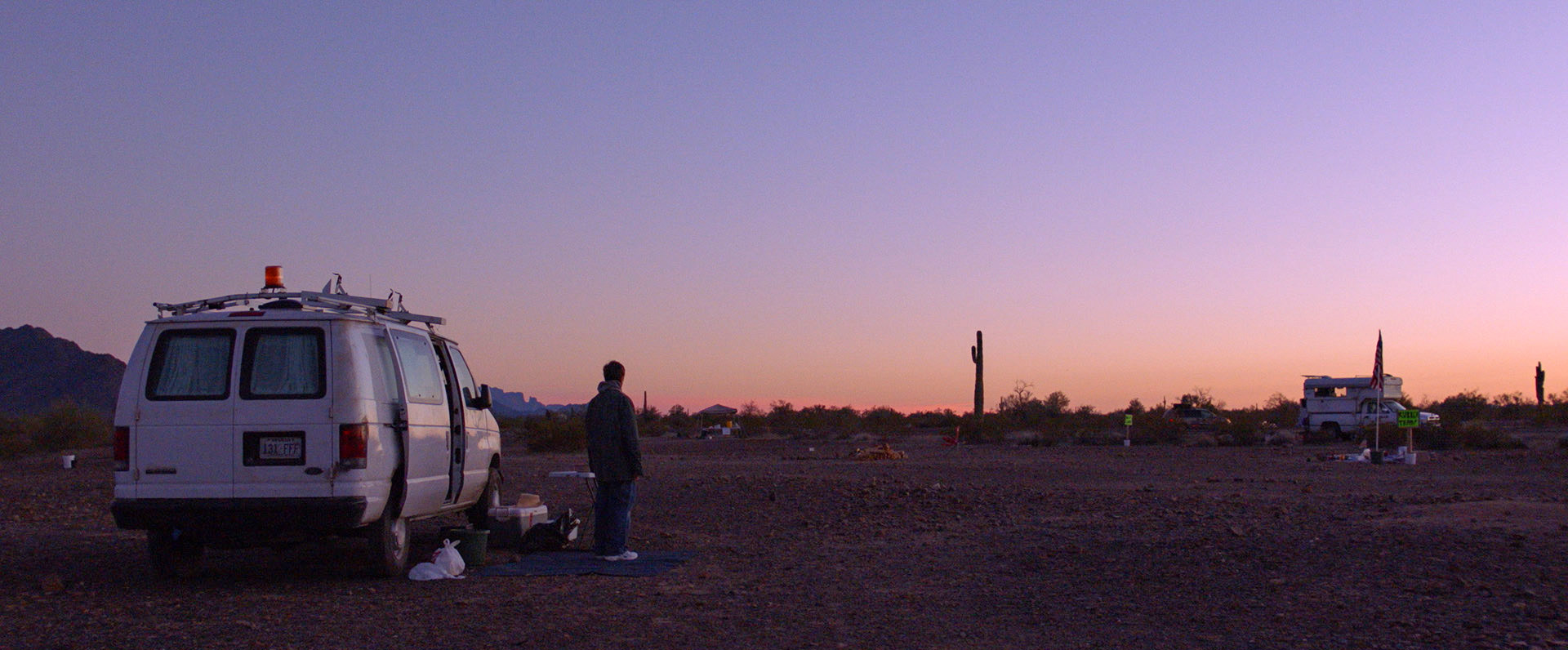
There’s a lot of natural light in Nomadland.
Richards: We used available light as much as possible and practicals inside. We stuck to that for 90 percent of the film. It was really fun to take the audience from those hundreds of miles of Badlands in either direction into the cocoon of Vanguard and the little paper lamp.
Zhao: From very early on, I made films so cheaply that we had nothing in our favor but the light in the sky and the freedom of time. So if I can’t put on a huge production, I’m going to wait for those 20 minutes [until the light is perfect]! No matter how much money you have, it’s very hard to get that light right.
Do you feel you are evolving Malick and Chivo’s “dogma”?
Richards: One-hundred percent. When I came out of Tree of Life, I collapsed on the sidewalk — I was making a show for my friends — and I was like, ‘This is it!’ I hope one day to have Chivo’s kind of vision and sensitivity to light. But obviously, you have your own sensibility and your own aesthetic. Malick’s world is pristine, a world in which God exists.
Zhao: Terry’s films have such a huge influence on Josh and me. Beyond all these things we learn from him, like shooting at magic hour or with wide-angle lenses, the most important thing is what cinema really means to a filmmaker. Terry needs to explore something he wants to understand about the world, about human existence, and that shines through his cinema. In my first three films, I’m asking these questions as well.
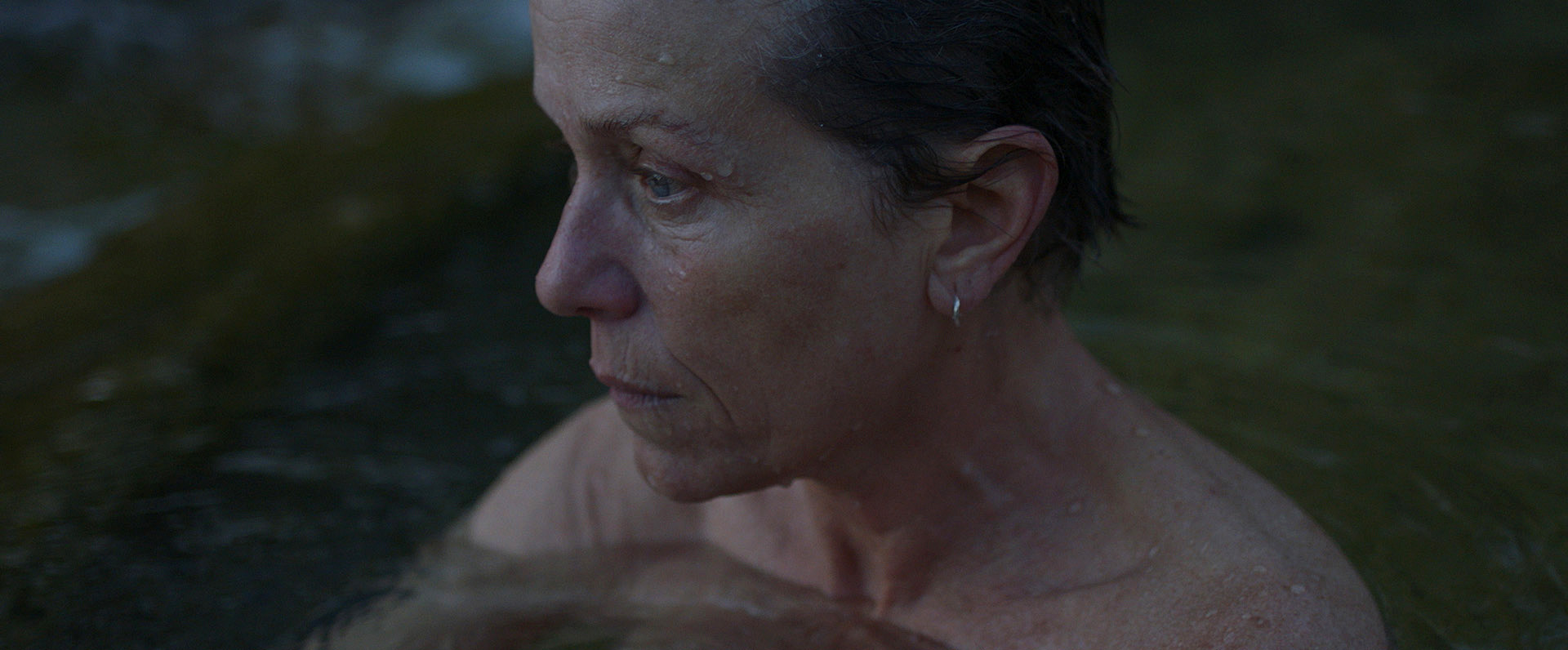
Nomadland has real people with real wrinkles. Clearly, Frances McDormand was ready to play with the camera quite close.
Richards: The film is really Frances’ face, isn’t it? One critic compared her face to a national park. Her face is lit every possible way in this movie. I shot all the close-ups with a 32mm [Arri/Zeiss] Ultra Prime [paired with Arri Alexa Mini and Arri Amira cameras], and I did get close. Fran was a collaborator all the way. There wasn’t a makeup artist on set. Chloé and I are kind of challenging that approach to filmmaking. We want to see these people as they are because they’re beautiful.
The characters are often beautifully transformed by the sky, which is another character. In sunlit exteriors, you often resort to sidelight or backlight.
Richards: Backlight separates people from the background, creating depth. In a natural environment, you get a blue bounce from the blue sky. To wrap that lighting, it feels more natural to use a blue bounce. That’s probably something I learned from Chivo. It feels more organic than an eyelight [fixture, which this technique provides, but with natural light]. Those moments, when the sun is gone but is bouncing up into the sky, are special and precious. We try to be somewhere quiet and intimate, like following Fran [and her friend] Swankie through the desert as Swankie is talking about the twilight of her own life. These things feel spiritual to me, even though I’m not a spiritual person. Those are the best parts of life, when you find yourself in a moment where everything seems to come together.
TECH SPECS
2.39:1
Digital Capture
Cameras: Arri Alexa Mini, Amira
Lenses: Arri/Zeiss Ultra Prime
You’ll find the author’s extended look at Nomadland here,
and his extended interview with director Chloé Zhao here
Richards was also recently interviewed by Amelia Vincent, ASC as part of our Clubhouse Conversation video series:

